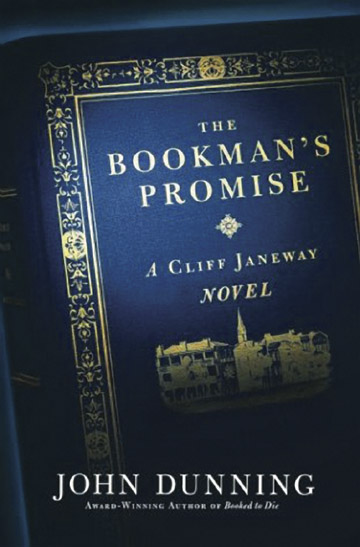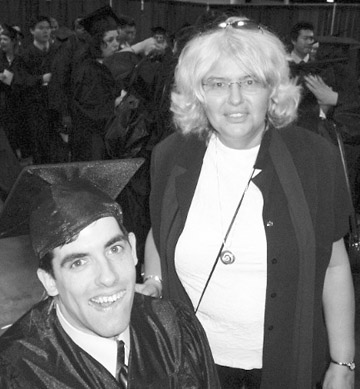Welcome Back, Cliff

John Dunning returns with another Cliff Janeway mystery, Booked to Die.
March 13, 2004
It only took eight years, but John Dunning has managed to produce another eccentric Cliff Janeway novel set in the world of Denver book dealing. Booked to Die follows on the heels of The Bookman’s Wake, where we first met Cliff Janeway, former P.I. turned bookseller, and its successful sequel, The Bookman’s Promise.
Dunning has displayed a unique ability to draw the reader into the world of literature without boring the audience with the blander points of pagination and print editions. Booked to Die’s concentration of one-liners is substantially less than either of his previous novels and Janeway’s humor has apparently deteriorated, having struck out twice in the world of love. However, Booked’s pace is faster while seemingly more introspective than Dunning’s prior work, a shift that displays a level of maturity and makes Janeway more human, thus approachable, to the reader.
In Booked, Janeway develops a passion for the nineteenth century explorer and premier Orientalist Sir Richard Burton, who discovered Lake Tanganyika and translated Arabian Nights. Having purchased one of Burton’s works using leftover cash from his last venture, Janeway’s pick leads to fame and an NPR interview. The subsequent publicity over this sought-after piece draws a little old lady to him who claims that her grandfather met Burton and owned one of his journals. Near in a centenarian, Josephine Gallant has an even more galling claim: that the novel Janeway purchased was one of a collection that was stolen from her.
The plot unwinds to bibliophilic proportions, quickly becoming a foray into a critique of historiography and a dazzling array of intrigue tying into the American Civil War that only a conspiracy buff could appreciate. It is as well researched and as consistent as his other Janeway novels, similar to Arturo-Perez Reverte, minus the latter’s touchie-feelie, sometimes overly emotive tangents.
Unfortunately, it’s this same knack for description that is also the work’s fatal flaw. In the course of reading this book, I scanned ahead too many times to find out where tedious dialogues would end. While I can be a stickler for description, I felt like I was having a root canal at certain points, slogging through Dunning’s portrait of Burton in 19th century American South. The use of hypnosis to retrieve Gallant’s childhood memories of her grandfather seems a bit too thin a premise for some parts of the plot, but otherwise, it’s a better read than most.
The interplay between Janeway and Erin D’Angelo lacks the fire of his former romances and becomes an adolescent game of cat and mouse rather than the witty repartee at which Dunning usually excels. D’Angelo’s involvement in Janeway’s investigation, merely playing hardball with the bitter bestselling author, appears too murky to have any real pertinence to the plot. However, it’s in his platonic relationship with ex-librarian KoKo Bujack that the reader sees remnants of the old spitfire Janeway for a few moments.
I do recommend this book despite the heavy criticism, which stems more from looking at the novel against the backdrop of Dunning’s previous work than from his overall above-average performance in this bibliophile-mystery subgenre. Booked to Die is one of the more substantial mysteries for a reader to sink their teeth into, rather than losing IQ points with the latest Mary Higgins Clark novel.























































